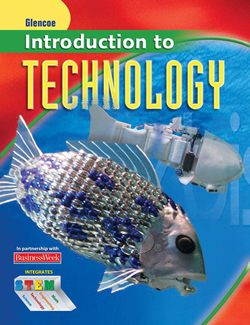
Introduction to TechnologyUnit 4: BiotechnologiesWebQuestsAlternative Fuels Introduction Gasoline is one of the products of the petroleum refining process. Much of the petroleum used in the United States is imported from countries overseas. This means that gasoline prices are tied to the prices they charge for crude oil. The price of crude oil has other economic impacts as well. For example, trucks use diesel fuel to move goods from one place to another. For more than 30 years, people have been researching alternatives to gasoline and other petroleum-based fuels. Some alternative fuels have been developed that can be added to gasoline to reduce the overall cost. Other alternative fuels can be used directly in present-day engines. Another advantage of alternative fuels is that most of them can be considered renewable resources. They can be replenished easily and can never run out. On the other hand, petroleum is a nonrenewable resource that can be used up. The use of alternative fuels also has benefits for agriculture and reduces damage to the environment. What are alternative fuels? Where do alternative fuels come from? What alternative fuels are in use today? In this WebQuest, you will explore the topic of alternative fuels and find the answers to these questions. Task Process Questions about Alternative Fuels 2. What is biomass? 3. Name two types of fuels made from biomass. 4. What is methanol made from? 5. What is ethanol made from? 6. Compare the cost of using a gas and ethanol blend to the cost of pure gasoline. 7. Find out if ethanol and gasoline blends are available in the area where you live. If they are available, find out if they are more or less expensive than pure gasoline. Report your findings. 8. How does the use of biofuel help agriculture? 9. How does the use of biofuel reduce air pollution? 10. Fuel cells are a new source of power that is still being developed. Name one advantage of using fuel cells for vehicles. Resources ABC's of Biofuels Go to this site for basic information about biofuels. Alternative Fuels & Advanced Vehicles Data Center: Alternative Fuels Visit this U.S. Department of Energy site to learn all about alternative fuels. Click on "Fuels" to find sources and other properties of various types of fuel. NREL: Biomass Research Go to this U.S. Department of Energy site to read about biomass. Alternative Fuels Go to this Environmental Protection Agency (EPA) site to learn more about alternative fuels. Scroll down to Fact Sheets on Alternative Fuels for information about ethanol, methanol, biodiesel fuel, and others. Go to the fact sheet for ethanol for a discussion about the cost (affordability) of gasoline and ethanol blends. Topical Reports: Alternative Fuels for Fleet Vehicles Visit this site by the Pacific Northwest Pollution Prevention Resource Center. You can find out how government and private industry have experimented with alternative fuels in their vehicles. Scroll down to learn more about alternative fuels such as natural gas, propane, ethanol, methanol, electricity, hydrogen, and biodiesel fuel. Biomass Program Biofuels can supply the U.S. with alternatives to imported oil. Visit this site to learn about biobased products used for fuel. Fill 'Er Up . . . With Soybeans and Corn Please Go to this site for information about the benefits of using biofuels. Fuel Cells and Vehicles This EPA site provides information about research on using fuel cells in vehicles. NREL: Hydrogen and Fuel Cells Research The National Renewable Energy Laboratory (NREL) site provides information about hydrogen and fuel cells research. Conclusion |  |















